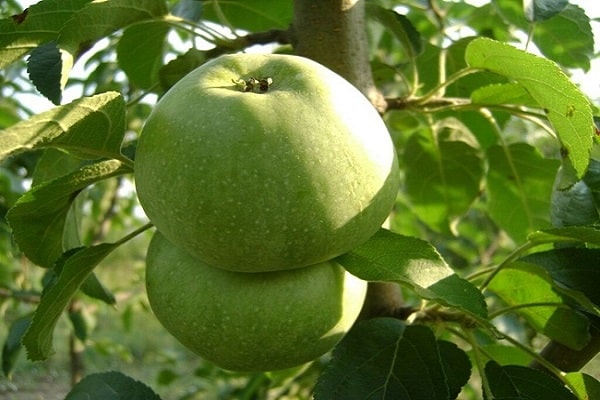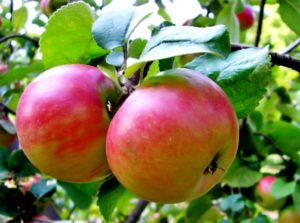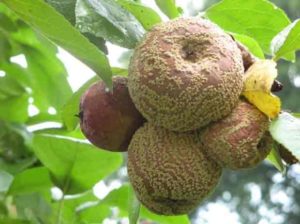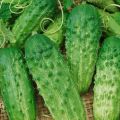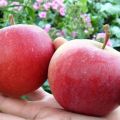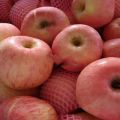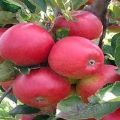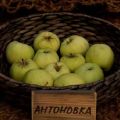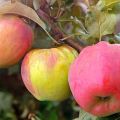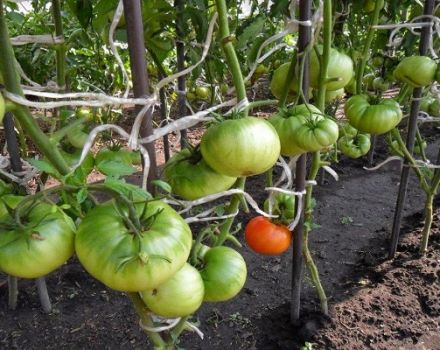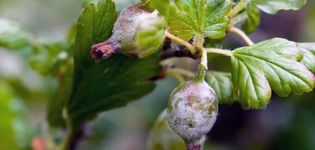Description of the apple variety Phoenix Altai, advantages and disadvantages, yield
The apple tree of the Phoenix Altai variety was bred by the breeders of the Scientific Research Institute under the guidance of the scientist-gardener Lisavenko specifically for cultivation in the harsh conditions of the Siberian region. Due to its undemanding and unpretentious care, as well as beautiful fruits with excellent taste, popularity quickly spread far beyond the Altai Territory.
Description and features
The Fenix Altayskiy variety was obtained as a result of free pollination of the Bellefleur-Fenix apple tree; the species is a universal winter high-yielding fruit crop. The trees, according to the description, are similar to the Golden Delicious variety, grow up to 8 meters in height. When planting, it must be borne in mind that the apple tree belongs to a self-fertile species and its pollination is carried out with the participation of pollen from trees of other varieties. Therefore, Phoenix Altai is recommended to be planted with seedlings of a different variety in strips, the distance between which should be 4-5 m.
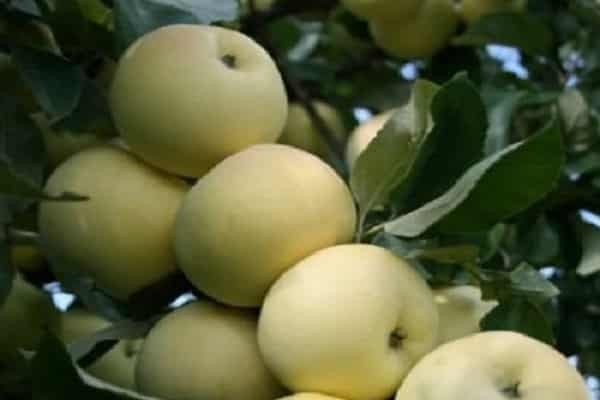
Advantages and disadvantages
The Phoenix Altai variety grows successfully in the harsh conditions of Siberia. Its main advantages are:
- grows well in low mountains;
- abundant fruiting;
- high consumer and commercial properties of apples;
- a long period of preservation of the harvested fruits;
- undemanding in care.
Of the few disadvantages of the variety, one can note the average winter hardiness and the risk of freezing in cold climatic conditions, as well as susceptibility to damage by pathogenic microscopic fungi, bacteria, actinomycetes.
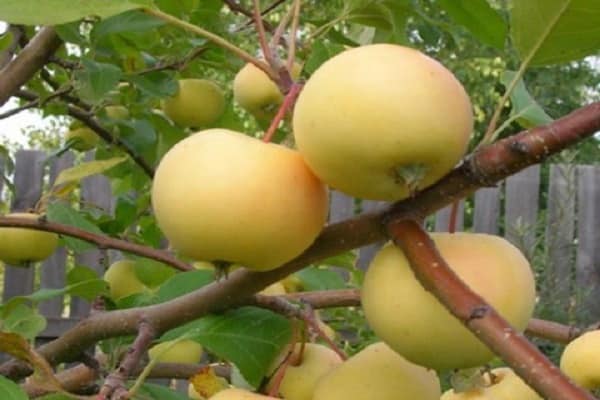
Characteristics of the Altai Phoenix apple tree
Apple trees grow quite compact in size with bright green foliage. Branches in relation to the axis of the trunk are located at an angle of 90 degrees. When forming apple trees, they should be thinned so that they do not intertwine and do not thicken the crown. The bark of trees has a dark brown grayish color, young shoots are brownish with a small edge.
Dimensions
Apple trees of this variety are distinguished by a moderate growth rate of 6-8 cm per year, medium-tall in height, do not exceed 7.5-8 m. The crown is medium-dense, has a spherical shape, compact, in the process of development it is formed by rare skeletal branches.
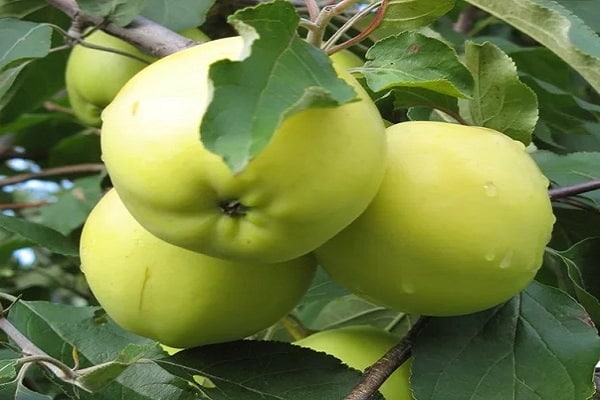
Yield
A rich harvest from apple trees of the Phoenix Altai species can be obtained already in the fifth year from the moment of planting in a permanent place. Despite the relatively small size of the apples, the variety is high yielding due to the abundance of fruits.
As a rule, the first apples appear already in the 2-3rd year after planting the seedling, but it is recommended to cut the flowers for the first 5 years to obtain a larger harvest in the future.
Fruits usually weigh from 70 to 150 g, nevertheless, from one young tree it is possible to harvest from 40 kg of apples per year, and the average yield is up to 22 tons per hectare.
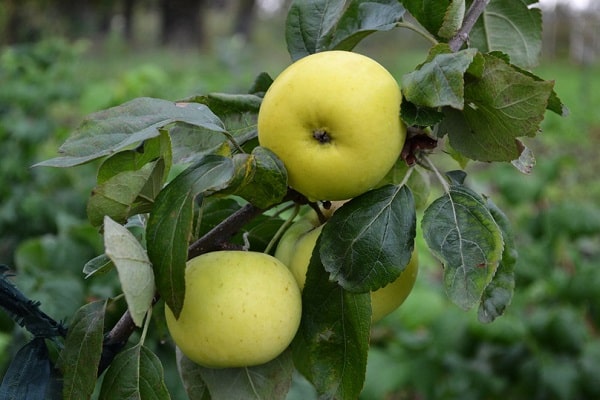
The frequency of fruiting
Apple trees bear fruit 5 years after planting every year, varying in fruit abundance. They fully ripen in late August and early September. Subject to the storage rules, apples remain intact until February.
Winter hardiness
The frost resistance of the Phoenix Altai variety is average. If the winter is severe, there is a high probability of freezing of trees. They grow best in low-lying areas.
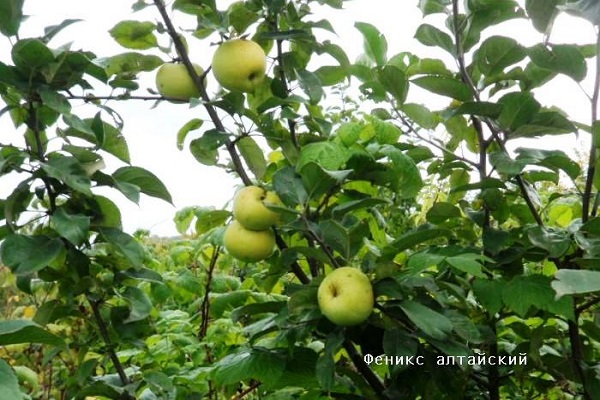
Disease resistance
Trees and fruits of the Phoenix Altai variety are susceptible to the incidence of scab, tinder fungus, powdery mildew, especially at high humidity. Therefore, it is worth paying special attention to timely herbicidal treatments.
When a scab is affected, spots, warts, pustules appear on the foliage, and a brownish peeling crust appears on the apples. The tinder fungus settles on the bark. Powdery mildew occurs after prolonged rains, covering the leaves with a whitish bloom.
Apple trees can also damage moths - moths that lay eggs on foliage, and if they do not get rid of them in time, then on fruits. Subsequently, worms appear from the eggs, which must be destroyed with the help of insecticides.
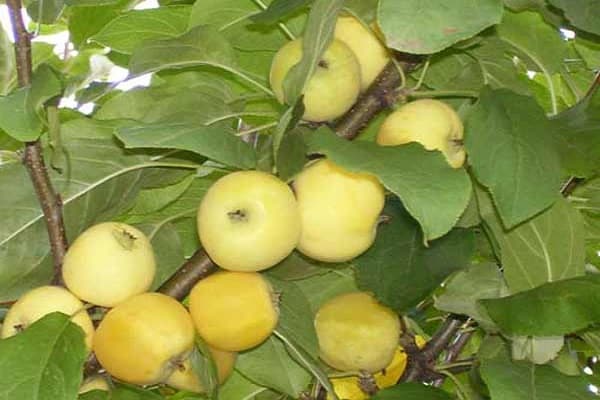
Fruit assessment
Round apples of the Phoenix variety with distinct ribbing are distinguished by excellent taste and marketability. Fruits are pale yellow or reddish in color, medium in size with smooth skin. The pulp is moderately dense, juicy, sweet and sour dessert taste.
The fruits of the Altai Phoenix apple trees have a rich chemical composition, a high percentage of sugar and pectin substances. In addition, 100 g of the product contains 17 mg of ascorbic acid, up to 115 mg of tannins, 124 g of P-active compounds.
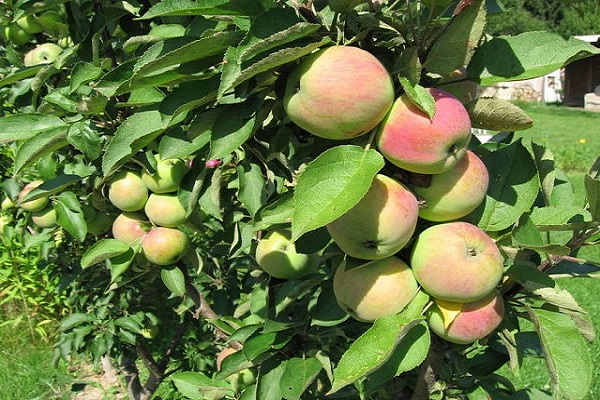
Spread
The final stage of the zoning of the Phoenix Altai variety falls on 1974. The territory with the most favorable natural conditions for the cultivation of this fruit crop is Western Siberia between the channel of the Yenisei River and the Ural Mountains. However, subject to the subtleties of planting and growing, the tree is able to adapt in different regions of Russia.
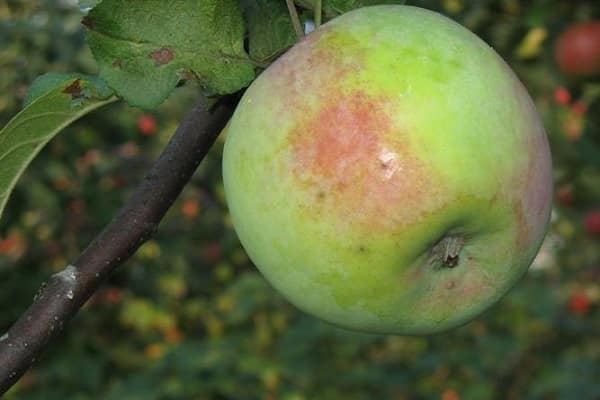
Reviews about apple
Mikhail, 37 years old: “Apple trees of the Altai Phoenix won over with their fertility, every year I harvest a large harvest from small trees. The apples are juicy, stored for at least 4 months. Growing healthy trees, of course, takes some tinkering. It is imperative to regularly treat them against fungal diseases and pests, otherwise there will be no sense. "
Svetlana, 34 years old: “It took a long time to choose which trees to plant the garden. Six varieties were planted, including Phoenix Altai. In our lowlands and during cold winters it grows excellently, the shoots have never frozen. There are a lot of apples, and you can increase the yield by observing a number of recommendations for the selection of seedlings, the rules for planting, feeding and care. I like to squeeze juice from apples. "
